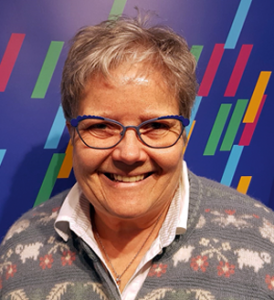Preface – ASCO 2019

Elisabeth Quoix, MD Department of Pneumology, Hôpitaux Universitaires de Strasbourg, Strasbourg, France Recipient of the BJ Kennedy Award ASCO 2019
Dear Colleagues,
Lung cancer is still a global public health problem and the first cause of cancer-related mortality everywhere in the world. Nowadays, this has particular implications for elderly patients considering the generally increasing life expectancy in conjunction with the rising cancer incidence with age. At the time of diagnosis, the median age of patients with lung cancer is 70 years in the USA and 65 to 70 years in Europe. Given the multitude of treatment options that are being tested or have already been established in clinical practice, it is safe to say that there is no more room for nihilism with respect to the older age group today. At the same time, the necessity of further improvement of treatment tolerability and personalization is beyond doubt.
At the ASCO 2019 Congress that took place in Chicago from 31st May to 4th June, a multitude of interesting data was presented in the field of lung cancer including (neo)adjuvant strategies and emergent agents for various types of oncogene-driven adenocarcinoma. Immunotherapy has made its way into the frontmost treatment settings; here, convincing evidence has been gained in phase II studies evaluating preoperative checkpoint inhibition. Likewise, the adjuvant armamentarium is expanding, with biomarkers potentially helping to refine patient selection. Long-term results obtained with immunotherapies in metastatic disease demonstrate lasting activity over years in a certain percentage of patients, while additional predictive biomarkers are entering the picture and might contribute to treatment decisions both before the initiation of (chemo)immunotherapy and during the early course of treatment.
In the area of targeted therapies, novel agents as well as combinations of established drugs will most likely define new standards for patients with advanced NSCLC in the years to come. Examples of combined regimens include the addition of anti-angiogenic agents or chemotherapies to EGFR tyrosine kinase inhibitors. Importantly, the range of known rare oncogenic driver mutations is growing, and, along with them, the availability of innovative drugs that selectively and potently target these aberrations. Thanks to dedicated research efforts, the proportion of patients who depend on chemotherapies alone for systemic treatment of their disease is constantly decreasing.
© 2019 Springer-Verlag GmbH, Impressum
More posts
Preface – ASCO 2019
Lung cancer is still a global public health problem and the first cause of cancer-related mortality everywhere in the world. Nowadays, this has particular implications for elderly patients considering the generally increasing life expectancy in conjunction with the rising cancer incidence with age. At the time of diagnosis, the median age of patients with lung cancer is 70 years in the USA and 65 to 70 years in Europe.



